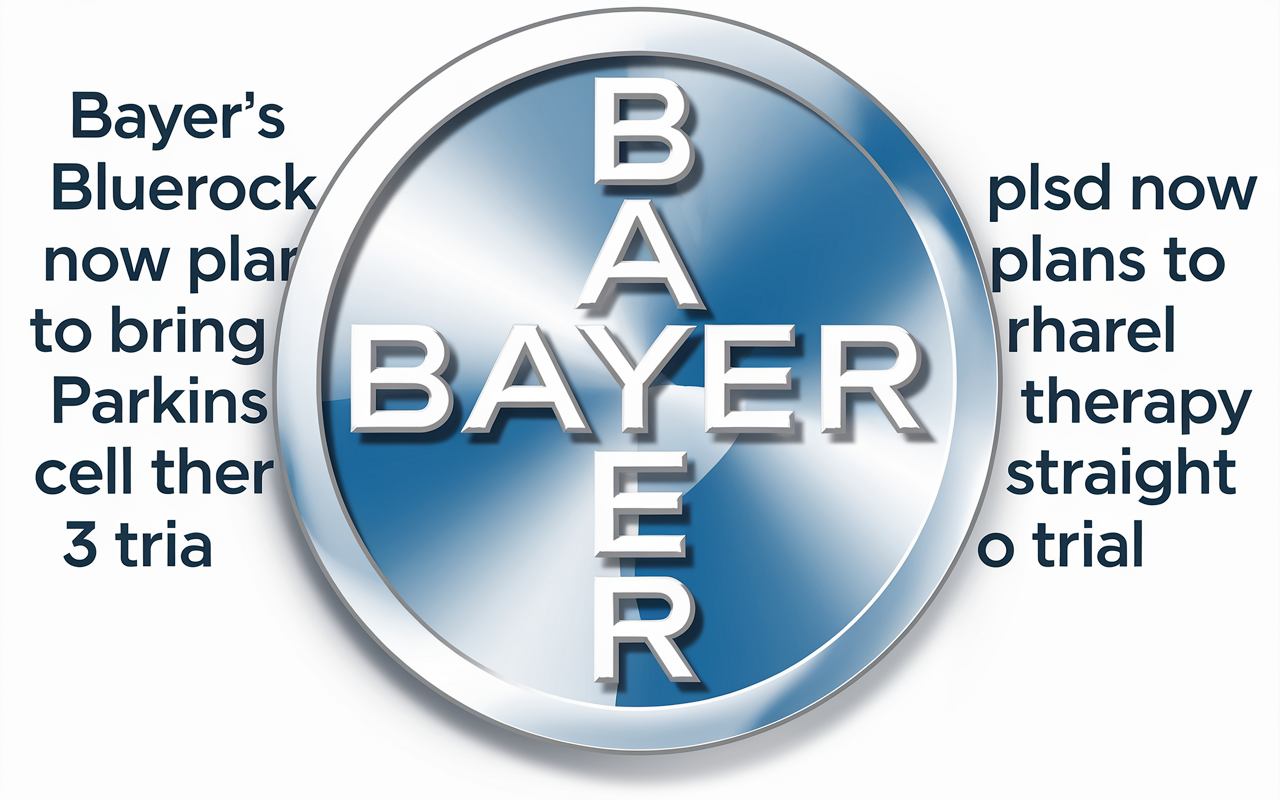Welcome to BioPharmaPulse, fellow innovators!
Welcome back to another edition of BioPharmaPulse, your heartbeat to the latest in biopharmaceutical innovation. This week, we're exploring groundbreaking developments that are shaping the future of healthcare.
What's in this issue:
- 🚀 GSK's bold $1B acquisition to fight rare cancers
- 🧠 Bayer's leap forward in Parkinson's disease treatment
- 🧬 Tune Therapeutics' massive funding for epigenetic editing
- 💡 Discover how new therapies are changing the landscape of medicine
Quote of the Day
"The science of today is the technology of tomorrow." - Edward Teller
Latest Developments
🚀 GSK Acquires IDRx and Its Rare Cancer Drug for $1B Upfront (2 minute read)

Rundown:
GSK has announced a major acquisition, buying the privately-held biotech IDRx for $1 billion upfront. This move brings IDRx's experimental treatment for a rare gastrointestinal cancer into GSK's oncology portfolio. The acquisition includes potential milestone payments, emphasizing GSK's commitment to expanding its cancer therapeutics pipeline.
Keypoints
- 💰 GSK acquires IDRx for $1 billion upfront
- 🧬 Gains access to IDRx's experimental treatment for gastrointestinal stromal tumors (GIST)
- 🔬 Strengthens GSK's oncology portfolio with innovative therapies
- 🌐 Emphasizes GSK's focus on rare cancers
Why it matters: This acquisition reinforces GSK's dedication to addressing unmet needs in oncology, particularly for rare cancers like GIST. By integrating IDRx's promising therapy, GSK aims to advance treatment options and improve outcomes for patients facing this challenging disease.
🧠 Bayer's BlueRock Advances Parkinson's Cell Therapy to Phase 3 Trial (2 minute read)

Rundown:
Bayer's biotech subsidiary, BlueRock Therapeutics, is advancing its experimental Parkinson's disease cell therapy, bemdaneprocel, directly into late-stage Phase 3 trials. This marks a significant milestone as the first regenerative medicine in neurology to enter registrational studies. Bemdaneprocel utilizes stem-cell derived neurons to potentially restore motor function in patients with Parkinson's disease.
Keypoints
- 🧪 BlueRock's bemdaneprocel to begin Phase 3 trials in Parkinson's disease
- 🧩 Therapy uses stem-cell derived neurons to replace lost dopamine-producing cells
- 🚀 Represents a pioneering approach in regenerative medicine for neurological disorders
- 🏥 Aims to address the underlying cause of Parkinson's rather than just symptoms
Why it matters: This advancement could be a game-changer in how Parkinson's disease is treated. By focusing on cell replacement therapy, BlueRock is tackling the disease at its root, offering hope for improved quality of life for millions affected by this degenerative condition.
🧬 Tune Therapeutics Raises $175M for Epigenetic Editing and Hepatitis B Therapy (2 minute read)

Rundown:
Tune Therapeutics has secured $175 million in a Series B funding round to advance its epigenetic editing technologies. The biotech aims to develop therapies that "tune" gene expression without altering the underlying DNA sequence. Their lead candidate, Tune-401, targets chronic hepatitis B by silencing the virus integrated into host cells, potentially offering a functional cure.
Keypoints
- 💰 Raised $175 million in Series B funding
- 🧬 Focus on epigenetic editing to modulate gene expression
- 🦠 Lead program Tune-401 targets chronic hepatitis B
- 🔬 Aims to provide treatments without permanently altering DNA
Why it matters: Epigenetic editing represents a frontier in genetic medicine, offering a way to treat diseases by adjusting gene activity rather than changing DNA. Tune Therapeutics' approach could pave the way for new treatments for chronic conditions like hepatitis B, impacting millions worldwide.
Question of the day
🤔 What area of biopharma innovation excites you the most?
Trending
📈 Pfizer's Sasanlimab Shows Promise in Bladder Cancer
- Pfizer reports that combining sasanlimab with BCG therapy improves event-free survival in patients with high-risk non-muscle invasive bladder cancer.
📈 Nipocalimab Receives FDA Priority Review for Myasthenia Gravis
- Johnson & Johnson announces that nipocalimab has been granted Priority Review by the FDA for treating generalized myasthenia gravis.
📈 Emiltatug Ledadotin Granted FDA Fast Track Designation
- Mersana Therapeutics' antibody-drug conjugate, emiltatug ledadotin (XMT-1660), receives Fast Track designation for cancer treatment.
Industry Insight
🔬 Demystifying Epigenetic Editing: The Future of Gene Therapy
Epigenetic editing is an emerging field that modifies gene expression without altering the DNA sequence itself. By targeting the epigenetic markers that regulate genes, scientists can effectively "turn on" or "turn off" specific genes involved in disease processes. This approach offers a reversible and potentially safer alternative to traditional gene editing methods.
Understanding epigenetic mechanisms opens doors to treating complex diseases like chronic hepatitis B, as Tune Therapeutics is exploring with their innovative therapies. By fine-tuning gene activity, we can address the underlying causes of diseases and develop personalized treatments with fewer off-target effects.
Quick Hits
📰 DOJ Investigates UnitedHealth Group's Practices (2 minute read)
- Summary: The Justice Department is interviewing former UnitedHealth Group physicians about their experiences working at practices owned by the healthcare giant. This inquiry could shed light on potential antitrust concerns and the impact of corporate ownership on patient care.
🧪 Developing a CRISPR Therapy for Muscular Dystrophy (2 minute read)
- Summary: Researchers in Berlin have developed a promising gene-editing approach using CRISPR technology to restore the function of a protein essential for muscle repair in muscular dystrophy patients. This preclinical research paves the way for potential human clinical trials.
🍬 Sugary Drinks Linked to Millions of Diabetes and Heart Disease Cases (2 minute read)
- Summary: A new study estimates that 2.2 million new cases of type 2 diabetes and 1.2 million new cases of cardiovascular disease occur globally each year due to the consumption of sugar-sweetened beverages. The research underscores the significant health impact of sugary drinks on chronic disease incidence.
Wrap up
As we witness these remarkable strides in biopharmaceutical innovation, it's clear that our industry is evolving at an unprecedented pace. From groundbreaking acquisitions to novel therapies entering critical trial phases, the future of medicine holds immense promise.
Thank you for joining me on this journey of discovery. Stay tuned to BioPharmaPulse for your heartbeat to the latest in biopharmaceutical advancements. If you found this issue insightful, please share it with colleagues and friends who share a passion for innovation.
Until next time,
Elliot Reeves | BioPharmaPulse
😊 How did you like today's email?
- 😍 Loved it
- 🙂 It was OK
- 😕 Could be better
